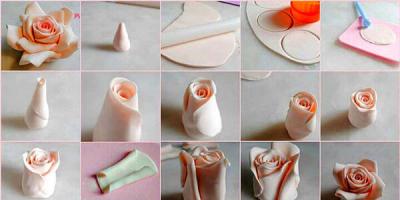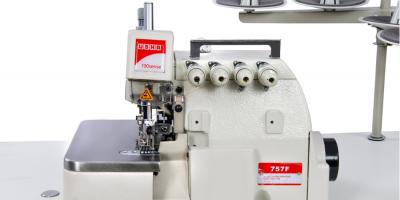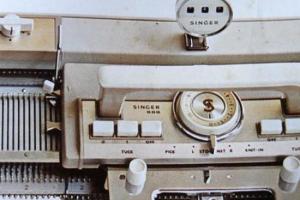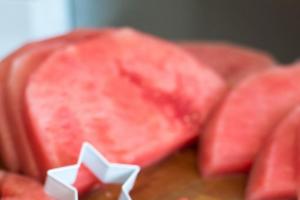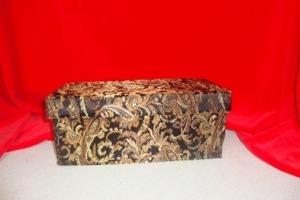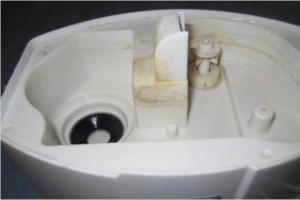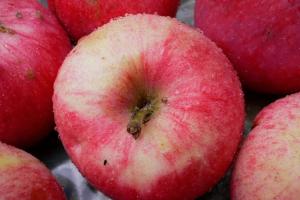Cleaning a burnt pan from carbon deposits without using any means is quite problematic - burnt pieces of food firmly stick to the walls and bottom of the pan, and even after soaking they come off with difficulty. However, it is quite possible to cope with the problem using folk remedies available in every home: soda, mustard, salt, vinegar and even activated carbon. How to do it?
When choosing suitable method You should pay attention to the material from which the dishes are made. For example, those methods that will help cleanse aluminum pan, may damage the coating of ceramic cookware.
The method is suitable for cleaning enamel, aluminum dishes and pans made of of stainless steel. The enameled one must first be allowed to cool so that the enamel does not crack due to a sharp temperature change.

The burnt container is filled cold water and leave for a while. Then pour out the liquid and pour in a large amount of salt so that it covers all the soot. Leave to soak for some time. As a rule, three hours is enough - after that the bottom and walls can be easily cleaned with a regular kitchen sponge.
The pharmaceutical product will help wash aluminum, enamel and stainless steel dishes. This method will perfectly cope with the consequences of burning milk.

Take several charcoal tablets, crush them to a powder, and pour the resulting product into the bottom of the saucepan. After half an hour, fill it with cold water and leave again for 30 minutes. After this time, the dishes can be washed as usual.
Mustard in powder form can be used to clean enamel pans. It will gently cleanse the enamel of carbon deposits and whiten it. You can also use mustard to clean dishes made from other materials or to wash dishes.

A handful of powder is diluted with a small amount of water so that a thick paste comes out. The resulting paste is applied to the stains or bottom and left for a couple of hours. During this time, the burnt material will soften and subsequently come off easily when cleaned with a sponge.
Another way is to dissolve mustard in water directly in the affected container and boil for an hour or two. Two tablespoons of powder will be enough for a medium saucepan. After boiling, you just need to rinse the dishes - all greasy or burnt marks will disappear.

You can replace mustard with whey - this completely natural product can also rid aluminum, stainless steel or enamel-coated dishes from carbon deposits. The acids it contains will help the stuck food move away from the internal surfaces.
Serum is poured into the bottom of the burnt container so that it covers the soot spots, and left to soak for a day. After this time, wash the pan with regular dish gel and a sponge.
The method using soda powder can be used if you need to clean not only the inner walls or bottom, but also the outer surfaces. The method is suitable for dishes made of aluminum, enamel, and stainless steel.

You will need another pan, with a diameter larger than the one affected. It is filled with water and soda is dissolved in it - for 5 liters of water you need to put a whole pack of powder. They put it on fire.
All soiled dishes should be removed plastic parts so that they do not melt, then place it in a large container. After the water boils, you need to keep the entire structure on the fire for another couple of hours. After this, turn off the gas and leave the dirty pan to soak in the soda solution. When the liquid has cooled, the dishes should be removed and washed.
Pour vinegar into the bottom of an aluminum pan, cover the pan with a lid, and leave for a couple of hours. After this period, the softened carbon deposits come off quite easily with normal washing.

The method is also suitable for enamel containers.
This method can be safely used for stainless steel, enameled or aluminum pans. It will help clean light stains.
The burnt container is filled hot water, dissolve a little dish gel there or liquid soap. Place on fire and boil for a quarter of an hour. Allow the liquid to cool, then clean it using a sponge.

You can use soda without dyes (Sprite, 7up). Any of these liquids is poured into the burnt pan and left for an hour. For severe stains, it is better to boil the soda for about half an hour to remove carbon deposits.

Coffee
Ground coffee can be used to remove burnt milk stains. To do this, apply the grounds to the contaminated areas, leave for a quarter of an hour, then clean off with a sponge.
Freezing
If you place a burnt container in the freezer for an hour, the dirt can be removed without using any cleaning products.
The main thing is not to place the pan under hot water, but to use cold water. Too sudden a change in temperature can damage the dishes.
These affordable and inexpensive products will help restore burnt dishes to their original appearance.
If you care about the health of your loved ones and know enough about the dangers household chemicals, then you’ve probably already looked . In fact, there are enough alternatives: soda, laundry soap, ash, borax, vinegar, lemon juice, etc. But I want to talk in detail about mustard powder, which, in my opinion, is the most accessible, convenient and versatile.
Why mustard powder?
The first reason why I chose mustard powder is that it is suitable for consumption. That is, it is not only completely natural and environmentally friendly, but also created specifically for food. This means that this is a truly safe dishwashing detergent, since even if it enters the body it will not cause any harm. However, it is washed off completely and very easily, so I’m not even sure that anything can get inside. But anything can happen: something didn’t wash off, somewhere some splashes got on a clean plate - now you don’t have to worry about that at all.
In addition, we not only come into contact with dishwashing detergents on our skin, but also inhale the vapors. In the case of mustard powder, everything is absolutely natural. Moreover, it also has disinfecting properties. There are even reviews in which people say that they began to get sick less.
He's doing great with fat. When I decided to use my new safe dishwashing detergent for the first time, I was very hesitant about washing a greasy dish. I just couldn’t believe that some kind of powder could remove fat as easily as the usual “Fairy”. But as soon as I rinsed the plate with water, I was amazed: it was clean, transparent and crunched loudly. But this crunch was from cleanliness, and not from additives that are added to dishwashing detergents specifically for a psychological effect. There is no smell from washed dishes, no grease residue, no cloudy residue - none of that. Perfectly clean.
Yes, of course, mustard powder does not foam as pleasant as the advertised chemistry, but believe me, this is the only thing in which it is inferior to it!
Where can I buy safe dishwashing detergent?
I myself gave up chemistry about a year ago and will definitely share my experience and observations about the possibility of replacing shampoo, cleansers, etc. in other articles. The first thing that interested me when I was just about to start washing dishes with mustard powder was where to get it. Indeed, if you have never been interested in this issue, it may not have caught your eye. But everything turned out to be very simple after the first trip to the grocery store. Mustard powder It is found almost everywhere; on the shelves you can find it next to spices or gelatin, vanillin, baking powder and other additives.
It is important here to look at price and volume bag. The fact is that I came across bags of 10-20 grams that cost almost a dollar. I don’t know what kind of gold manufacturers make it from, but 50-100 gram packages are great for washing dishes. A 100-gram package costs a little more than a package of gelatin - not at all expensive. Therefore, if you have never bought mustard powder, be vigilant and do not waste your money.
How to wash dishes with mustard powder?
In order to wash dishes with mustard powder It was convenient, I found two ways for myself. I’ll tell you about both, although I myself preferred the second. I'll tell you the reasons below.
First way: pour the powder into a container and simply dip a sponge into it. I didn't like this method for two reasons. Firstly, the powder somehow ran out very quickly. It attached to the sponge unevenly and in a thick layer. It turned out that although it is pleasant to wash with fresh mustard powder in large quantities, it is somehow too uneconomical. In addition, since it was located near the sink, water often got into it. After that, it completely rolled up, stuck together, and my safe dishwashing detergent was not at all as pleasant as what I had just poured.
I had to invent second way. For it, I needed an empty half-liter bottle from a product that had already run out. I poured 30 grams of mustard powder into it, filled it 2/3 with water, closed the lid and shook it well. All new safe dishwashing detergent in the usual packaging - ready! The result should be an opaque, but not thick liquid. But if you use this method, you will have to shake the bottle slightly each time before applying our safe product to the sponge, because the powder does not dissolve in it, but settles to the bottom.
Do not fill the bottle more than 2/3-3/4 , because firstly, it will be inconvenient to shake it, and secondly, the mixture will quickly deteriorate. Actually, this is the second disadvantage of this method. For our modest family of two people, this amount is enough for five days. But in the end the product is completely stale and unpleasant, although it cleans just as well. However, this disadvantage is easily solved by preparing the mixture more frequently in smaller quantities. However, I am sure that in a family with a larger number of people this problem disappears by itself. But in this form, mustard powder falls on the sponge more evenly and not as wastefully as in the first case.
The Myth of Savings
I would also like to say a few words about savings. You can often hear enthusiastic exclamations like: “Oh, much cheaper and no worse than special products!” Unfortunately, I cannot agree with this. Yes, a bag of mustard powder is really much cheaper than a can of some “Fairy” or “E”. But it lasts for much less long term. As a result, if you compare the amount you will have to spend on mustard bags and the cost special means for washing dishes, which will take the same amount of time, I think it will be about the same number. And maybe even the mustard powder will go away, although not by much. However, even if so, the other advantages of mustard powder over chemicals are undeniable.
In conclusion, I want to say that at first, in searching alternatives to dish soap, I was undecided between mustard powder and soda. I even tried mixing them as an experiment. But in the end I still settled on mustard powder. The fact is that soda is not suitable for many sensitive surfaces, as it simply scratches them. Mustard powder is universal. You won't harm them. But sometimes, if necessary, for example, to wipe off something burnt, you can use soda to help.
Although I personally have never had such a need. Any dirty dishes can be easily washed with a simple sponge after soaking for several hours.
I wish you, dear ones, to wash any dishes without difficulty and not harm your health!
Many housewives often wonder how our grandmothers coped with household chores without the modern benefits of civilization. After all, there were no slabs or dishwashers, not even dishwashing detergent. But there is a compelling argument here! Previously, environmentally friendly products were used for bleaching, disinfecting and degreasing, such as salt, soda and mustard powder. That's what we'll talk about.
Why mustard powder?
The first reason to use dry mustard is its naturalness and suitability for consumption. Therefore, even if a little product remains on the washed dishes, it is completely safe.
The second reason why you should wash dishes with mustard is its ability to cope perfectly with grease! Moreover mustard is excellent disinfectant Therefore, dishes washed with dry powder are perfectly disinfected, have no odor, and no grease residue.
The third reason is the environmental friendliness of this product. No emissions are released during the dishwashing process. chemical fumes, which is not unimportant for health, especially if you are allergic!
The fourth reason for using dry mustard is considered to be significant savings in hot water! To remove soapy detergent, you must rinse the dishes very thoroughly and repeatedly. In the case of mustard, everything is simple; it is easily washed off from the surface of plates, pots, pans, leaving only a pleasant squeak of cleanliness.
And one more, fifth, very important reason for using mustard powder is the environmental friendliness of the product. Getting into wastewater, this product does not harm in any way environment, unlike chemical detergents. This is an absolutely safe and natural remedy.
How to wash dishes with mustard powder?
To make washing dishes with dry mustard convenient, there are several simple ways its use.
To wash dishes in the first way, just take a convenient container small size(for example, a soap dish or a box of ear sticks), pour mustard powder into it and dip a dishwashing sponge in it.

The method is very simple, but there is a nuance - sometimes you put more powder on the sponge than you need, it just sticks to the wet sponge in pieces and is then simply washed off the plate.
Here's method number two - another matter! You can use an empty bottle of used dishwashing detergent and fill it about a third full. running water and add dry mustard. The consistency of the gruel should be like 15% cream, moderately thick and moderately liquid. To make it convenient to pour the mustard into the bottle, use a watering can, inserting it into the neck of the bottle, so the mustard will not spill past.
In the third method, there is no need to wet the mustard. You need to take a container for bulk substances (for example, a salt shaker or baby powder), fill it with dry mustard and screw the lid tightly. Using this method, just shake out the required amount of powder onto a washing sponge or directly onto dirty dishes. Now all you have to do is be careful and not add mustard to your food.
The fourth method is combined. We will combine mustard with soda. Baking soda also perfectly removes grease and dirt, and also neutralizes odors. The process of preparing such a product is very similar to the second method, only you also need to add 1-2 tablespoons of soda to the bottle along with mustard powder. Accordingly, the amount of water must be increased to obtain the desired consistency. However, you should not get too carried away with soda, since its granules can easily ruin the dishes by scratching them.

As in previous cases, there is also one nuance here - you should not prepare a large amount of the mixture, since the product quickly disappears and acquires an unpleasant odor.
A dishwashing detergent like mustard powder is safe and effective, although it has its drawbacks.
- Consumption. For a family of three to four people, where dishes are washed after breakfast, lunch and dinner, the consumption of dry mustard will be quite considerable - 3-4 packs per week. Therefore, it is worth buying mustard with a reserve, especially since the costs will be minimal.
- Foam. Mustard powder will never foam into nice soapy bubbles, like in chemicals ah for washing dishes. Therefore, there will be no pleasant sliding of fingers and pouring of bubbles.
But it’s difficult to call such disadvantages and disadvantages, unless you’re very picky. In general, mustard dishwashing mixture has whole line advantages and benefits.
So, from the above we can conclude regarding the use of mustard powder as an alternative dishwashing detergent.
- Naturalness;
- Efficiency;
- Budgeting;
- Environmental friendliness;
- Ease of use.
There is no doubt that mustard powder is the number one remedy among alternatives to destructive chemical products. It will also take care of you and the environment.
Everyday in everyday life modern man uses up to five types of different chemicals. These are washing powders and conditioners, cleaning products and, of course, dishwashing liquid. And if the powders come into contact only with the skin, then the remnants of gels for cleaning plates and cups enter the body.
Experts and scientists have broken a lot of spears in disputes about the dangers and benefits of synthetic detergent compositions. But everyone is free to choose whether they are ready to absorb the remaining foam along with an appetizing dish. Moreover, there are natural alternative compositions that cope with food residues just as well.
Kitchen helpers
Washing dishes is an unpleasant but necessary process. You have to stand at the sink and pick up a sponge at least 2 times a day. And even more often for parents of infants and toddlers.
These childhood acquaintances will help make washing dishes simple and safe food products and substances:
- Mustard. Crushed hot grains perfectly absorb fat. With their help, you can wash even frozen food residues. Mustard dishwashing powder can be used alone or as part of a mixture.
- Soda. An excellent cleaning and disinfectant. Thanks to its abrasive properties, it copes with even stubborn deposits on dishes.
- Vinegar. This substance alone will not cope with fat, but it can be used to disinfect washcloths. And also add to cleaning pastes to kill mold.
- Soap. Usually the same unpresentable laundry soap is used. It effectively removes grease film and is completely washed off with water.
Each “assistant” can be used either solo or in tandem. You just need to figure out for which surfaces this or that safe composition can be used and how to do it correctly.

Mustard powder
Grandmothers and mothers washed dishes with mustard powder many years ago. This product was used to clean dishes in kindergartens, since the “scorching assistant” is completely safe.
Dry mustard for washing dishes is the most common mustard powder that housewives purchase for making mayonnaise and other sauces. The price is more than affordable, and a pack will last a long time.
For convenience, the powder can be poured into a suitable jar or powder container, so it will be convenient to dose.
Mustard is applied to a sponge, the dishes are thoroughly treated and washed off with water. You don't have to use too much water, the powder comes off easily.
The only disadvantage of this cleaning method is the low effectiveness of the product in cold water.
There are known cases of allergies to burning powder. To make sure there is no reaction, it is enough to remember whether family members have previously eaten mustard, for example, with dumplings or jellied meat. If such a seasoning has always been served on the table and has not caused negative reactions, there is nothing to worry about.
Baking soda
The use of soda in everyday life practically knows no bounds. It is added to cleaning products, incorporated into homemade washing powders and gels, and, of course, used to wash dishes.
Typically, baking soda is used to remove stubborn stains. This substance will help make pots, glasses and cups shine, as if they were just purchased.
To clean, dissolve a few tablespoons of baking soda in water and soak the dishes for half an hour. After this, wash with a sponge. If the stains are not removed, apply a little powder to a cloth and rub the stains with pressure. Even burnt fat and tea residue give way under such pressure.
Baking soda for washing dishes can be used in several ways. But it cannot be used to clean frying pans and pots with Teflon coating. Abrasive particles will damage the non-stick layer.

Food vinegar
The acidic fermentation product is used not only for cleaning the house. It is added to the water for the final rinse of hair, and it is used to clean washing machine And Electric kettle. This liquid will help in the fight against dirty dishes.
Of course, you shouldn’t wash your plates with vinegar after dinner. But you can use it in several ways:
- To add shine glassware. Soak glasses and shot glasses in the solution, rinse under running water, and wipe dry.
- For whitening white dishes. Soak and wash plates and salad bowls.
- To soften burnt food. Pour vinegar over the remaining food directly in a saucepan or on a baking sheet overnight. In the morning, a light mechanical impact will be enough.
In addition, wooden planks, brushes, etc. can be treated with an acidic composition. Such an effect will relieve unpleasant odor and will prevent the proliferation of microbes.
Laundry soap
Classic laundry soap, yellowish-brown and not having a pleasant smell, is a real find for the housewife. With its help you can not only wash clothes and clean the house, but also wash dishes.
It is enough to soap the sponge and thoroughly clean the plates with it. Soap does an excellent job of removing grease even in cool water. The foam is completely washed off the plates and leaves no odor.
You can also make a liquid product from soap, which is convenient to dose. It is enough to grate the bar and dissolve it in water. To prepare such a composition, you can use soap residues that accumulate if the housewife washes with laundry soap. They can be collected, then melted and turned into a safe dishwashing liquid.

Eco-friendly pasta
From safe and widely used household ingredients, you can make a paste that can cope with stubborn stains.
For this you will need:
- 1/3 bar of soap;
- 2 tablespoons each of soda and mustard powder;
- 2 ampoules (2 tablespoons) ammonia;
- glass of water.
All ingredients are available, safe and effective: mustard powder, laundry soap and soda - such a paste will be indispensable for washing dishes:
- Grate the soap and mix with half the water. Heat, stirring, until the soap dissolves. Gradually add water until you get the consistency of sour cream.
- Cool slightly, add soda and mustard powder, stir thoroughly. Add ammonia.
- Beat the mixture using a mixer. Foam will form during operation and should be removed. Pour the product into a container with a lid and be sure to close it so that the alcohol does not evaporate.
This safe and effective composition can be used immediately after cooling.
Using natural ingredients such as soda and mustard for washing dishes will allow you to forget about harmful and expensive industrial compounds. Pots, plates, glasses and other kitchen utensils will be sparkling clean. And it will be especially pleasant to know that the family is free from contact with chemical compounds.
Mustard powder for washing dishes has been used for a long time. And even now, in the era large quantity household chemicals and mass advertising, this powder is used by many wise housewives. They not only easily deal with grease on dirty dishes, but also protect the health of each member of their family. How convenient this tool is and how to use it correctly, you will learn from this article.
Dangers of cleaning products and detergents
There is a lot of talk now about the dangers of detergents and cleaning products. But that doesn't stop people from buying harmful chemicals. In most cases, this comes from ignorance of the specific problems that can arise from using cheap detergents.
Store-bought products, even well-known brands, contain harmful chemical substances, which enter the human body through the respiratory tract and through food, because most of them are not completely washed off from the dishes.

Important! To completely remove chemical deposits from dishes, you need to rinse them more than 10 times. clean water with a sponge, which is at least 50 liters of cold water per plate.
The consequences can be really terrible:
- Oncological diseases.
- Infertility.
- Allergic reactions.
And this is by no means full list diseases.
A big and fat disadvantage of using store-bought household chemicals is the harm to the environment, in particular to the bodies of water into which they fall from the sewer. Not a single manufacturer indicated on the label that such products are tested on animals and not a single advertisement mentioned this.
The conclusions suggest themselves: you need a safe product that is safe to wash plates and pots and that will not pollute rivers and lakes.
Safe dishwashing detergents
Fortunately, people have already learned to understand that not all beautiful products are good for health. And those who realized this a long time ago use environmentally friendly dishwashing detergents. One option is organic products, the only disadvantage of which is their cost. But in order not to pay a lot of money, you can return to already proven methods that are both safe and effective. For example, washing dishes with mustard.
How to wash dishes with mustard powder?
There are several ways to effectively clean dirty kitchen utensils mustard powder.
Method 1
For further convenience, mustard powder should be placed in a convenient jar from which it can be easily removed. Dip a damp sponge into the powder and start rubbing the plates.
Important! You can also pour mustard into a salt shaker-type jar with large holes and apply the powder directly to dirty dishes. A clean baby powder bottle is ideal for this purpose.
Method 2
Another option on how to use mustard powder for washing dishes will probably appeal to many:
- Pour 1 cm thick mustard powder into a clean bottle with a dispenser.
- Pour water there - about another 4 cm.
Important! The water should be cold or warm, but in no case hot, as then the mustard will release toxic fumes.
- Shake the mixture well until no powder remains at the bottom.
Important! Do not prepare a full bottle of solution at once, as it will be very difficult to shake.
- Leave the shaken mixture for 5 minutes to allow the mustard powder to swell.
- Before applying the finished product to the sponge, shake the bottle so that the mustard is evenly distributed in the solution.
Important! For this method, it is best to take a transparent bottle so that you can clearly see the consistency of the product.
The disadvantage of this method is the frequency of use and constant shaking.
Important! The mixture should not be left on long time in a warm place, otherwise it will turn sour. In summer it is better to store it in the refrigerator or in a drawer under the sink..
Method 3
For more old stains, use mustard powder along with soda. For this:
- Mix mustard and soda in a 1:1 ratio.
- Sprinkle this mixture onto dirty dishes and start washing them.

Important! Delicate surfaces such as Teflon must be soaked in this mixture, and then simply wiped with a wet sponge.
Benefits of using mustard powder for washing dishes
Let's take a closer look at the benefits of washing dishes with mustard.
Safety
Mustard is a natural remedy. Therefore, the risk of allergic reactions is minimal. If you have at least once used mustard as a seasoning during meals, then you will definitely not be at risk of allergies when using cutlery washing powder.
Mustard is great for washing children's dishes. Also, this powder is absolutely safe for the environment.
Saving water
You only need very little water to wash a plate compared to store supplies. Even cold water perfectly removes mustard residues on dishes.
Efficiency
Mustard powder copes with fat and old food no worse than any household chemical.
Important! Previously, all large canteens had containers with mustard powder. It was widely used for mass washing of dishes, and this process took very little time.
Disinfection
Mustard not only cleans greasy cutlery well, but also perfectly disinfects them. It kills all germs on surfaces and forms an invisible protective film, which does not allow microorganisms to develop on treated items. Moreover, it is very difficult for microbes and bacteria to adapt to mustard.
Cold water
It is not necessary to use warm or hot water. With the help of mustard powder, plates and pans can be easily washed even in cold water.
Convenience
Every advertisement for a cleaning product talks about how convenient their product is to use. But mustard dishwashing powder is in no way inferior to its chemical competitors. It is as easy to use as any other.

